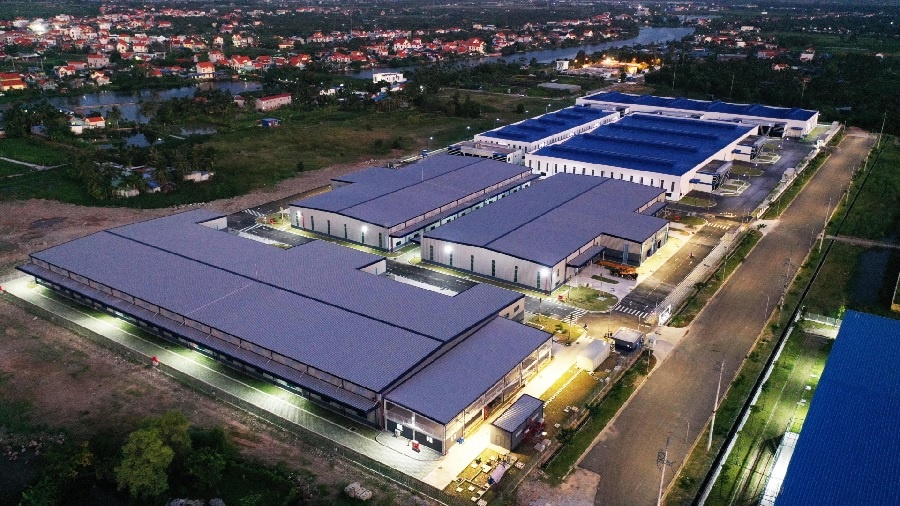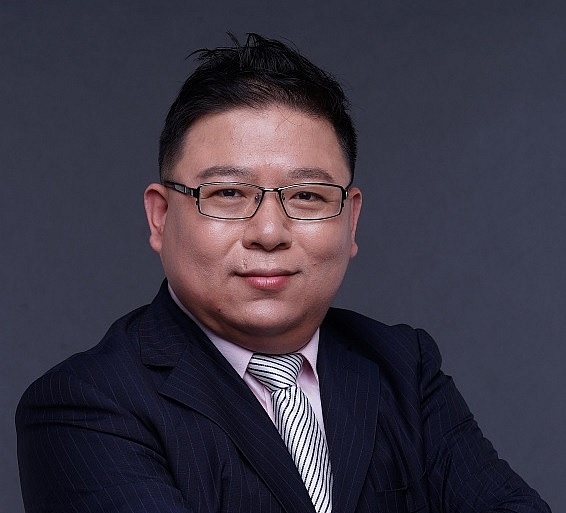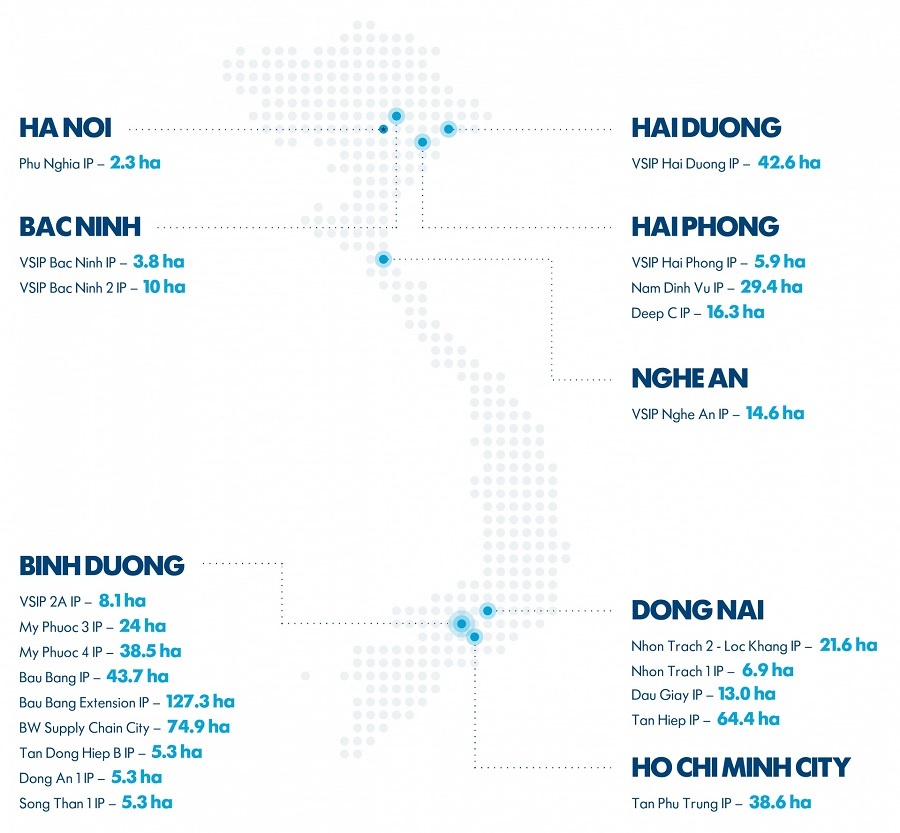INTERNATIONAL INVESTMENT
AND PORTAL
At the end of June 2021, the ultra-contagious Delta variant triggered a spike in infections in Ho Chi Minh City, reaching as high as 4,000 cases for the first time. As an office worker in a non-priority vaccination group, you hastily ordered an imported box of FDA-approved 3M 1870+ N95 masks. Before the spike, orders were delivered within 3-5 days, and certainly in no more than a week. However, due to strict social distancing restrictions, it was not until mid-September, when you had already received two doses of AstraZeneca, that your order arrived.
In that 10 times longer delivery window, several things happened: Ho Chi Minh City authorities tightened social distancing measures three consecutive times, the number of infections exceeded 650,000, and the number of COVID-19-related deaths surpassed 16,000. With the pandemic putting incredible pressure on importers, sellers, e-commerce sites, and delivery companies, the shipping delay was an inevitable consequence of an over-loaded global supply chain.
While the effects of COVID-19 have touched nearly every aspect of the global economy, not all businesses have been adversely impacted. “The pandemic has certainly led to an unfortunate series of events. However, from a business perspective, it has been an accelerant for warehouse demand,” said Lance Li, CEO of BW Industrial Development JSC (BW).
BW, Vietnam's largest industrial for-rent developer, has witnessed a high volume of inquiries throughout the pandemic. Even during the recent rise of the Delta variant, the company's overall occupancy is close to 90 per cent.
 BW has witnessed a high volume of inquiries throughout the pandemic
BW has witnessed a high volume of inquiries throughout the pandemic
The second year of the pandemic has been an active year for BW. At the beginning of 2021, the company witnessed a threefold increase in rental enquiries compared to the same period last year. The company recently closed a deal with J&T, a company engaged in logistics and package delivery, for a five-hectare warehouse in a strategic location in Ho Chi Minh City.
Wanek Furniture, a key manufacturing company in the supply chain of one of the largest furniture retailers in the US, Ashley Furniture, leased another four-hectare site from BW in Binh Duong Province. Market demand skyrocketed in the past two years, which can be seen in the fact that BW’s factory in VSIP 2A industrial park is already fully occupied following its construction completion in early June.
Founded in 2018, BW is a joint venture between Warburg Pincus and Becamex IDC. The high-profile private equity firm and the pioneer developer of large-scale industrial townships in the south shared a strategic vision of establishing a modern industrial and logistics real estate platform in Vietnam.
In only three years, BW’s rapid expansion has drawn undeniable attention from local industrial developers. As of the end of September, the company has grown its land bank massively, with a total of 602 hectares to date and various projects located in Binh Duong, Dong Nai, Ho Chi Minh City, Bac Ninh, Hai Phong, Hai Duong, and Hanoi – Vietnam’s key industrial cities.
BW’s key product lines are ready-built factories and warehouses with flexible sizes suitable for all types of tenants. In addition, the company also provides customised industrial and logistics facilities based on each customer’s business goals, budgets, and progress. As of September, BW's ready-built properties have reached a total gross floor area of approximately 4.1 million sq.m, of which nearly 1.3 million sq.m are completed and under operation. The company offers a variety of flexibly-sized factories from 500-10,000 sq.m, which means the largest size can be 1.5 times larger than a FIFA football field.
Nelson Wu, general director of BEST Inc. Vietnam, said his company visited more than 50 facilities and worked with more than 10 agents before finding BW, “Their solid infrastructure platform helps deploy modern tech solutions, which helps us better manage our business.”
Meanwhile, Shopee, a leading e-commerce platform with more than 60 million monthly visits, also benefits from BW's warehouse offerings. “The strategic partnership with BW gives us the capability to deliver best-in-class logistics services to our users, further strengthening the growth of e-commerce in Vietnam,” said Tran Tuan Anh, managing director of Shopee Vietnam.
BW’s operations are targeted at specific customer groups, among which are the e-commerce platforms in a race to win market shares. Another group of customers using leased assets is foreign investors implementing the China+1 strategy due to the ongoing trade war between the US and China. In the first stage, these overseas investors seek ways to stabilise their cash flow by renting ready-built factories in Vietnam, especially when industrial parks in prime locations have reached 2-3 times the price in the last three years.
As of October, 79 per cent of BW’s ready-built properties are located in southern localities of Vietnam; 18 per cent are in the northern region; and the remaining are in the central region. With an extensive network of projects across Vietnam, the pandemic has had an insignificant effect on BW’s operations.
For example, in Hai Phong, one of the most successful localities to respond to the current wave, the company’s operations were barely disturbed, apart from tough preventive measures and disease control. BW is developing two factory sites in VSIP Nam Dinh Vu and VSIP Hai Phong industrial zones with a total area of nearly 50 hectares.
The south, by contrast, saw Binh Duong and Dong Nai become the country’s second- and third-largest COVID epicentres after Ho Chi Minh City. BW provides factories for lease in four industrial zones, namely My Phuoc 3, My Phuoc 4, Bau Bang, and Nhon Trach. During the most intense period of the pandemic, 95 per cent of BW’s factory tenants operated under the stay-at-work model.
The company had to step up disease control, strengthen control over the flow of people, conduct periodic screen testing of workers, and swiftly apply quarantine measures for those infected. On the managerial side, BW also provided a vaccination programme for tenants’ staff to ensure a safe environment for all. At the beginning of October, all of the company’s tenants in Binh Duong and Dong Nai returned to regular operation. Eighty per cent of workers received the first dose, completing the second dose by the end of October.
 Lance Li, CEO of BW Industrial Development JSC (BW)
Lance Li, CEO of BW Industrial Development JSC (BW)
As new COVID variants sweep across China, India, Indonesia, Malaysia, and the Philippines, Vietnam still holds strong in comparison. For our ready-built factory sector, we have many clients waiting for visas to fly to Vietnam to make key decisions.
The advantages that help Vietnam remain an attractive destination for foreign capital: a skilled and relatively inexpensive workforce; rapidly improved infrastructure; and a growing number of free trade agreements that Vietnam is a part of, including the ASEAN Free Trade Area, CPTPP, EVFTA, and, most recently, RCEP.
From another perspective, there is an upswing in warehouse demand associated with the explosive growth of e-commerce, which is still in a relatively nascent stage and accounts for only 5.5 per cent of total retail sales. We expect it to grow significantly in the coming years; we’re already seeing an increase in demand for modern warehousing, cold chain, and cold storage.
Modern, multi-story warehouses are also on track to be rolled out faster in the next few years, particularly around Hanoi and Ho Chi Minh City, where land prices are high and strategic locations are in short supply.
 As of the end of September, BW has grown its land bank massively, with a total of 602 hectares to date
As of the end of September, BW has grown its land bank massively, with a total of 602 hectares to date







